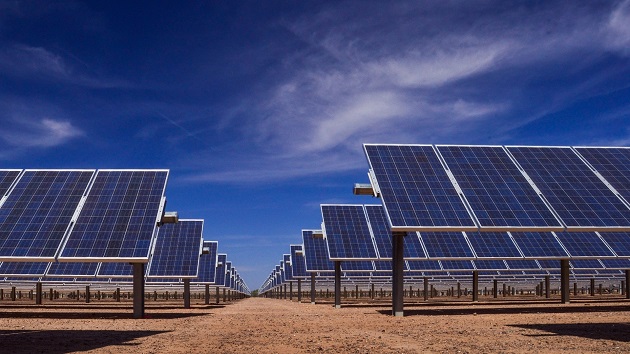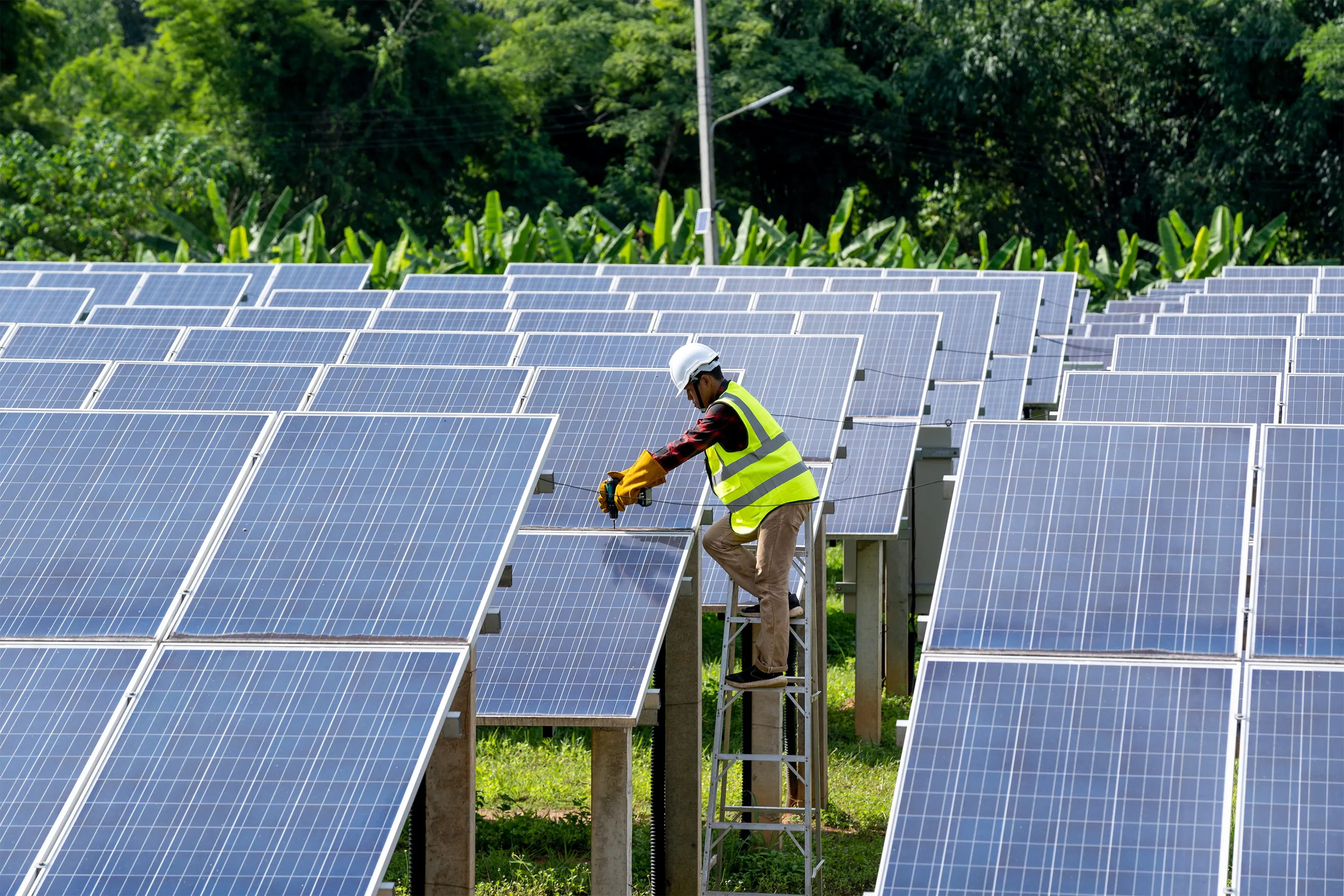Commercial Solar Panels Virginia Can Be Fun For Anyone
Commercial Solar Panels Virginia Can Be Fun For Anyone
Blog Article
Virginia Solar Panel Company: Lumina Solar Focuses On Offering Advanced Photovoltaic Solutions For Homes And Businesses
History and Founding
Have you ever questioned how a solar panel company springs from a simple stimulate of motivation into a powerhouse of renewable resource? It frequently begins with a vision-- one fueled by a blend of development, determination, and a pinch of serendipity. The journey of lots of solar companies mirrors the evolution of the technology itself: from bulky, ineffective panels to smooth, high-efficiency marvels harnessing the sun's bounty.
The Early Days
In the late 20th century, when solar energy was still a specific niche concept, leaders planted seeds for what would end up being an international motion. Imagine a small workshop filled with curious engineers, relentlessly try out photovoltaic cells. Their passion was palpable, often driven by a desire to combat climate change and lower reliance on nonrenewable fuel sources.
One such anecdote has to do with a creator who, inspired by an outdoor camping trip, realized that even in remote areas, the sun could power important gadgets. This easy observation sparked a company's objective to democratize access to tidy energy.
Establishing Concepts

- Development: Continually pressing the boundaries of solar innovation to enhance performance and durability.
- Sustainability: Dedicating to environmentally friendly manufacturing and decreasing carbon footprints.
- Availability: Making renewable energy options affordable and practical for everyday users.
Turning points in Growth
| Year | Secret Occasion |
|---|---|
| 1985 | Business founded in a small garage, concentrating on research and development. |
| 1995 | Commercial solar panel item launched, acquiring local attention. |
| 2005 | Broadened to international markets, embracing international renewable resource objectives. |
| 2015 | Introduced advanced photovoltaic panel technology with enhanced energy conversion. |
Isn't it interesting how these incremental steps, typically overlooked, shape the energy landscape today? The solar panel business story is not almost technology; it has to do with an unrelenting quest for a brighter, cleaner future.

Innovations in Solar Panel Technologies
Ever observed how some solar panels gleam brighter and last longer? It's not magic; it's the science of photovoltaic effectiveness. Modern photovoltaic panel business invest greatly in innovations like bifacial cells, which catch sunshine from both sides, boosting energy harvest without expanding roof space. Have you ever wondered why some panels perform much better on cloudy days? That is because of advances in thin-film solar innovation, which thrives under diffused light conditions.
Product Variations Customized to Special Needs
One size never fits all. Photovoltaic panel providers now use:
- Monocrystalline panels for maximum performance and streamlined aesthetic appeals, ideal for space-constrained roofs.
- Polycrystalline panels, which use an affordable alternative without compromising too much output.
- Building-integrated photovoltaics (BIPV), combining solar tech perfectly into architectural elements like windows and facades.
Selecting the best product isn't practically in advance cost; it has to do with matching your environment, energy objectives, and long-lasting cost savings. For example, homes shaded by trees need panels that stand out in low-light situations, something numerous ignore up until energy costs climb up unexpectedly.
Technical Tips for Ideal Selection
- Examine the temperature coefficient-- lower values imply panels lose less performance on hot days.
- Look for panels with boosted anti-reflective finishings to optimize light absorption.
- Think about the panel's guarantee not just for defects, but for ensured power output over years.
- Don't undervalue the significance of the inverter innovation paired with the panels; it can make or break your system's performance.
Beyond Panels: Emerging Patterns
Imagine photovoltaic panels that change their angle instantly to go after the sun-- tracking systems are ending up being more available, increasing yield substantially. Or solar tiles that blend invisibly into your roofline, changing your home into a silent, self-sufficient power generator. These developments are improving what a solar panel company uses-- not simply products, however integrated energy services.
Market Existence and Global Operations
Ever wonder why some solar panel companies seem to sprout up in every corner of the world while others barely make a ripple? The distinction lies not simply in innovation however in mastering the art of browsing varied markets. Expanding globally is like planting seeds in various environments-- you need to understand each environment's special conditions to prosper.
Take, for circumstances, the elaborate dance of logistics and supply chain management. Delivering panels midway throughout the world isn't just about distance; it's about timing, customs, tariffs, and adapting to local demand fluctuations. A company with robust international operations anticipates these variables, ensuring panels arrive on schedule without pumping up expenses. This foresight is no small feat and frequently separates industry leaders from fans.
Key Strategies for Expanding Market Presence
- Localized manufacturing: Establishing production hubs near target markets lowers shipping delays and import complexities.
- Strategic collaborations: Working together with regional firms speeds up market penetration and develops trust.
- Adaptive product style: Customizing photovoltaic panel tech to weather, sun intensity, and infrastructure subtleties enhances efficiency and approval.
What about the human aspect? Solar panel companies running globally need to reconcile cultural distinctions and regulative nuances without forgeting their core mission. What works in a sun-drenched desert may falter in a humid coastal area. In some cases, the most ingenious solution is just listening-- soaking up local insights to refine innovation and method.
Experts frequently recommend a phased rollout rather than a shotgun growth. Why run the risk of overextension when measured development builds sustainable momentum? Scaling sensibly suggests balancing aspiration with operational durability - Residential Solar Panels Virginia. After all, in the race for sustainable energy dominance, patience can be as important as speed
Environmental Effect and Sustainability Practices
When photovoltaic panels initially emerged, many assumed they brought zero ecological luggage. The reality is more nuanced. The production of photovoltaic cells includes rare earth metals and energy-intensive procedures, which can leave a substantial carbon footprint before the panels even reach rooftops. Yet, the true environmental expense depends greatly on the sustainability practices used by the solar panel company throughout the lifecycle of their items.
How frequently do we stop briefly to consider what happens to solar panels at the end of their beneficial life? Unlike batteries or electronics, photovoltaic panels can last 25-30 years, but disposal and recycling pathways stay underdeveloped in many areas. A business dedicated to decreasing here ecological damage will have a robust prepare for recycling photovoltaic products, restoring important silicon, glass, and metals to prevent land fill accumulation.
Key Sustainability Strategies
- Using low-impact production techniques that minimize water and energy usage.
- Carrying out closed-loop systems to recycle production waste back into new panels.
- Participating in transparent supply chain audits to make sure ethical sourcing of basic materials.
- Creating panels for simpler disassembly to assist future recycling efforts.
It deserves noting that some solar business have pioneered innovative methods, such as incorporating naturally degradable elements or utilizing less toxic chemicals throughout fabrication. This not just reduces ecological strain but also sets a precedent for the market. The question stays: can the solar market truly pivot towards a circular economy model without sacrificing effectiveness or cost?
Professional Tips for Evaluating Sustainability
- Ask about the company's dedication to carbon-neutral manufacturing and whether they balance out emissions.
- Examine if they partner with licensed recycling facilities devoted to photovoltaic panel waste.
- Search for transparency reports detailing ecological impacts and sustainability objectives.
- Consider the durability and guarantee of panels as an indirect measure of resource efficiency.
In the end, deciding for solar power must suggest more than simply slashing electrical power expenses; it has to do with nurturing a future where energy is gathered properly and waste is attentively handled. Solar panel business that welcome this approach not only light up homes but also cast a brighter light on sustainable innovation.
Report this page